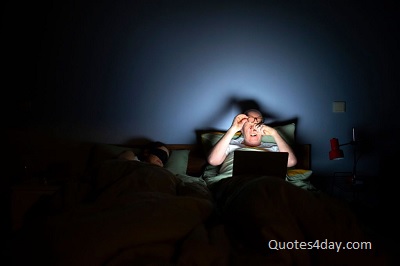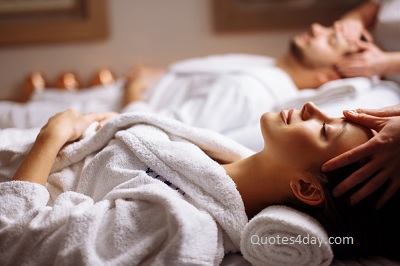Stress and anxiety are conditions that, alas, for many have ceased to be rare even in peacetime, and now they affect us even more strongly. These feelings not only negatively affect the mental state, but also health in general. On the one hand, stress and anxiety help a person adapt to certain life situations, but on the other hand, it is important not to cross the line when emotions take over and it becomes difficult for you to control yourself. in this article, we will touch on one important topic – insomnia against the background of experiences. This is especially true today, as each of us has been under the powerful influence of stress factors. So let’s figure out how to quickly calm down and fall asleep, get rid of disturbing thoughts, and generally restore your emotional state.

Why sleep is so important
Sleep and health are closely related. The average adult needs 7 to 9 hours of sleep. During this period, several important biochemical processes are carried out in the body, which affect:
- Improvement of brain function;
- Restoration of the energy reserve;
- Increased concentration and performance during the day;
- Support for regeneration and metabolism processes;
- Help in the fight against depression;
- Strengthening the immune system and more.
Now it is very difficult for many to fall asleep because of the constant sounds of sirens, explosions, and an endless stream of information. Obsessive thoughts simply do not leave alone. Reflections on the decisions made, scrolling in the head of events, and the eternal question “What will happen if ..” simply do not let you calm down. We urgently need to get rid of this condition, learn to pull ourselves together, and drive disturbing thoughts away.
Identify the Root Cause of Your Stress and Anxiety
It will take some time and expert advice to get your circadian rhythms right during a period of prolonged stress and anxiety. We suggest using proven methods that will help overcome anxiety and insomnia.
How to fall asleep quickly when you’re scared
- Practice Deep Breathing
During stress and anxiety, the pulse rate increases sharply, and the level of cortisol, or, as it is also called, the stress hormone, increases in the blood. As a result, these two factors affect the rise in blood pressure, the appearance of weakness, and a decrease in immunity, not only. That is why it is so important to take control of your emotions. Even breathing techniques will help to calm down and restore the heart rhythm. Get comfortable and close your eyes. Counting to four, take a slow breath through your nose. Exhale also for the same four-second count. All your attention should be focused on breathing, which will allow you to get a little distracted and recover. The number of seconds allowed for inhalation and exhalation may vary. It is important to ensure that breathing is even.
You can also get 10 Essential Joint Mobility Exercises for Optimal Health
Develop a Relaxation Routine Before Bedtime
Progressive muscle relaxation is a proven way to de-stress and anxiety to fall asleep. To do this, you need to lie down comfortably and follow simple instructions:
- Raise your eyebrows for about five seconds. Then slowly lower them down, feeling how the muscles relax and tension subsides;
- Pause for 10 seconds;
- Close your eyes tightly, squinting slightly. Stop in this position for five seconds. Relax.
- Pause for 10 seconds;
- Smile broadly, and hold for five seconds. Relax your facial muscles slowly;
- Pause for 10 seconds;
- Tilt your head back as if you want to look at the edge of the ceiling. Stay in this position for five seconds. Then slowly return to the starting position. Feel how your neck sinks into a soft pillow;
- Pause for 10 seconds;
- Continue to tense and relax every part of your body in the same spirit.

If you feel drowsy at any stage, take this opportunity to immerse yourself in that long-awaited sleep.
How to calm down and fall asleep
- Limit the amount of time you use gadgets.
We all read the news endlessly, even trying to distract ourselves with something, but the hand still treacherously reaches for the phone for a new portion of information from the front line. Make it a rule: about an hour before bedtime, part with gadgets. In this way, it will be possible to avoid disturbing thoughts, which only do what they settle in a thick fog in the head. Instead, think about what you would do immediately after the end of the war. Dream up, think about the good, it works.
- Release emotions.
Do not keep everything to yourself, because sooner or later the entire collected emotional lump can cover your head. Talk to family, and friends, and share your experiences with them. You will notice how it becomes easier. If there is no desire or opportunity to communicate with someone, start a personal diary. It does not have to be a notepad, you can keep it in your gadget. Describe your feelings, share experiences, and splash out all emotions. You will notice how tension will go away, you will be able to relax and free yourself from thoughts that prevent you from falling asleep.
How to sleep when stress and anxiety
- Don’t go to bed if you don’t want to sleep.
If you are trying to force yourself to sleep, and Morpheus, unfortunately, does not want to take you into the world of beautiful dreams, do not torture yourself. After all, while you are trying to fall asleep, the brain will have time to again find reasons for new worries. Read a book, have a cup of tea, pet your pet, do things that don’t cause anxiety, and calm you down. As soon as you feel sleepy, you can go to bed.
- Avoid certain foods.
It is important to exclude coffee, alcohol, and heavy food. Give preference to tea with chamomile. You probably did not know that chamomile is called a mild tranquilizer. The plant contains an antioxidant called apigenin, which helps reduce stress and anxiety, and sleep.

By using these simple calming techniques, you can improve your sleep patterns and give your body a chance to rejuvenate and keep you healthy. Be sure to share this article with those who do not know how to fall asleep during stress and anxiety and cannot cope with their experiences.
FAQs
1. What can I do to feel less stressed and anxious?
There are lots of ways to feel less stressed and anxious, like taking deep breaths, talking to someone you trust, doing things you enjoy, and making sure you get enough sleep. It’s important to find what works best for you and make it a part of your routine.
2. How can I sleep better?
You can sleep better by having a bedtime routine, avoiding caffeine and sugary foods before bed, making your bedroom comfy and quiet, and doing calming things like reading or listening to music before you go to sleep.
3. Does exercise help with stress and anxiety?
Yes! Exercise can help you feel less stress and anxiety because it makes your brain release happy chemicals called endorphins. It can also help you sleep better, have more energy, and be more focused during the day.
4. Can the food I eat affect my stress and sleep?
Yes, the food you eat can affect how you feel and how well you sleep. Eating healthy foods like fruits, veggies, and lean proteins can make you feel better and sleep better. Eating too much or eating unhealthy foods before bed can make it hard to sleep.
5. What can I do to relax when I feel stressed or anxious?
There are lots of things you can do to relax, like taking deep breaths, tensing and relaxing your muscles, imagining a calm and peaceful place, meditating, or doing yoga. You can try different things to find out what works best for you.


